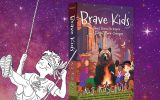Teachers know that kids learn better and are more engaged when they learn by doing. These experiential ways to make science class more fun can transform the perception of science from being a complex subject into an exciting journey of discovery.
The Chemistry of Baking
Baking is not just about creating delicious treats; it’s a practical demonstration of chemistry in action. When students mix ingredients and bake them, they witness firsthand the chemical reactions that occur. For instance, they can observe how yeast ferments sugar to produce carbon dioxide, causing dough to rise. This hands-on approach makes learning about chemical reactions engaging and memorable.
The Old Vinegar and Baking Soda Trick
An oldie but a goodie, the reaction between vinegar and baking soda is a classic science experiment that never ceases to amaze. When you combine these household items, students can see the immediate effervescent reaction, which illustrates the concept of acid-base reactions. This simple yet effective experiment provides a tangible way for students to understand abstract scientific concepts.
Gamify It
Introducing games into the science curriculum can enhance student engagement. Here are some examples:
Robotics Competitions
Robotics competitions encourage students to apply their knowledge of physics and engineering in a fun and competitive setting. As they design, build, and program robots, they learn problem-solving skills and teamwork.
Rube Goldberg Competitions
In Rube Goldberg competitions, students design intricate machines to perform simple tasks. This process encourages creativity and critical thinking and makes learning about mechanics enjoyable.
It also introduces students to the concepts of mistakes to avoid in design for manufacturing. Budding inventors can experiment with the most complicated ways to attain their goals so that they can learn to simplify their own inventions to make them easier to manufacture.
Science Trivia or Jeopardy Games
Hosting science trivia or jeopardy games and pitting teams of students against each other in friendly competition can make learning science facts and concepts fun. These games stimulate students’ curiosity and promote a competitive spirit, making learning more exciting.
Go Outside and Find Science
Taking science lessons outside the classroom can add a new dimension to learning. Students can explore ecosystems, study weather patterns, or examine geological formations. This experiential learning approach allows students to connect theoretical knowledge with real-world observations.
Let Students Ask, “What If….?”
Encourage students to ask “What if…?” or “Why?” questions and explore the answers through safe, guided experiments. This cultivates a sense of curiosity and encourages independent thinking. It also allows students to see science as a dynamic field where new discoveries are waiting to be made.
Experiential learning can make science classes more enjoyable and engaging. When students learn by conducting experiments, inventing things, or watching how yeast makes bread rise, they enjoy what they are learning. And when they find joy in the learning process, they’re more likely to retain the information and develop a long-lasting interest in the subject.













